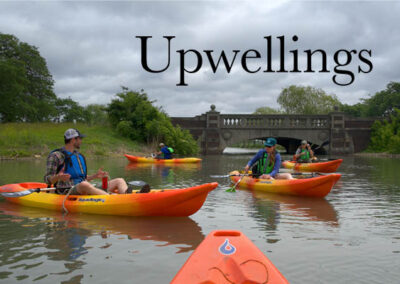Earlier this year, Michigan Sea Grant sought input from its community to ensure that its research and programming are meeting the needs of Michigan residents in protecting our Great Lakes resources. The intention of the survey was to gather input from our stakeholders to help develop a strategic vision for the next four years – from 2024 to 2027 – that builds on previous successes and responds to new challenges and priorities ahead.
More than 400 responses were received. Respondents provided input on the importance of the issues that MISG works on, whether there are additional emerging priorities that we should focus on, and how well MISG’s activities and products are meeting the needs of our Michigan communities. In addition, survey takers were asked to provide their thoughts on anything else they wished to share with us.
“It was very affirming to hear that the majority of respondents were happy with the work MISG has been doing and consistently ranked the issues that we focus on as top priorities for the state,” concluded Director Tom Johengen. For example, the results showed that people in Michigan want MISG to continue to direct our efforts toward climate change, water quality, invasive species, shoreline erosion, and fisheries management.
“Climate change effects and prioritizing resilient coastal communities and education, fisheries, and ecology,” said one respondent. “[F]ostering research, education and information sharing/partnerships among communities will be key.”
The highest ranked topics, based on the percentage of respondents who rated issues as slightly to above average, included (see Figure 1): water quality/contaminants (83%); habitat restoration and protection (83%); aquatic invasive species prevention (81%); watershed health (80%); public awareness/community education (76%); fisheries management (75%); Great Lakes literacy (70%); environmental and Great Lakes literacy (70%); and safe and clean ports, harbors, and marinas (69%).
Many people are concerned about the effects of invasive species and the importance of maintaining native species. They wrote about the concerns they have of invasive mussels and plants, and the loss or decline of many species of native fish. We’re glad to see that many of these concerns and points of feedback mesh well with our current programs and priorities. For example, the Great Lakes Aquatic Nonindigenous Species Information System (GLANSIS) database and supplementary materials are helping to address the issue of invasive species.
Respondents also overwhelmingly emphasized the importance of education to help address all of these issues. This includes education of not just school children and K-12 teachers, but the public, such as shoreline homeowners and others who access lake resources.
“Public Awareness is huge for all these priorities and works best with taking action in all these concerns. Action and awareness toward developing issues would naturally follow as people expect you to be a leader as when new issues, research, or information arises,” read one reply. Another respondent noted, “We need to provide more aquatic science opportunities for urban students and their families.”
Several comments cautioned Michigan Sea Grant not to spread its efforts too thin when there is so much to be done. In response to this concern, MISG is hoping that this input will help us focus our efforts on those issues of greatest importance to Michiganders and where we can also be most effective.
“Michigan Sea Grant provides exceptional products and services that are incredibly valuable for our coastal community,” said one respondent.
In the coming years, MISG plans to continue our commitment to diverse and inclusive engagement to facilitate research, education, and outreach through partnerships with people and organizations to foster healthy Great Lakes coastal ecosystems, communities, and economies.
Figure 1: Top ranked priorities based on percentage of respondents who ranked issues slightly above to above average.



